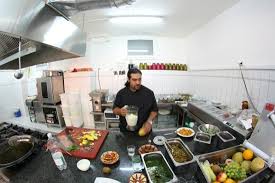Catering is more than just food delivery; it’s an intricate blend of culinary art, event planning, and hospitality. Whether for corporate meetings, weddings, or intimate gatherings, catering transforms a meal into an experience. This article delves into the world of Catering Zurich, exploring its significance, trends, and the secrets behind its success.
The Essence of Catering
Catering bridges the gap between cuisine and occasion. It caters to diverse needs, from plated dinners and buffets to food trucks and interactive culinary stations. Unlike standard dining, catering adapts to the environment, guest preferences, and theme of the event. A successful caterer doesn’t just deliver food—they deliver an experience that reflects the client’s vision.
Key Components of Catering
- Menu Planning
At the heart of catering is the menu. Caterers craft menus that align with the theme and audience of an event, ensuring dietary needs and cultural preferences are considered. A well-planned menu balances flavors, textures, and aesthetics, creating a culinary narrative that complements the occasion. - Logistics and Coordination
Behind every seamless catering service is meticulous planning. From sourcing fresh ingredients to managing event timelines, caterers must juggle logistics to ensure timely preparation and delivery. This includes coordinating with venue managers, understanding spatial constraints, and managing staff assignments. - Presentation
Visual appeal plays a critical role in catering. Whether it’s an elegant dessert table or a rustic charcuterie board, presentation elevates the dining experience. Modern catering often incorporates artistic plating, themed décor, and even edible centerpieces. - Customer Service
Catering is as much about hospitality as it is about food. Professionalism, punctuality, and adaptability are vital. Caterers must also manage on-the-spot challenges, such as weather changes for outdoor events or last-minute guest increases.
Emerging Trends in Catering
- Sustainability
Eco-conscious catering is on the rise, with a focus on locally sourced ingredients, minimal food waste, and biodegradable packaging. Clients increasingly value caterers who prioritize sustainability in their operations. - Interactive Food Stations
Guests love experiences. Live cooking stations, make-your-own dessert bars, and cocktail crafting corners allow attendees to engage with their food, adding a layer of entertainment to the event. - Fusion Cuisine
Blending culinary traditions from around the world creates unique and exciting menus. Fusion cuisine caters to adventurous palates and reflects the diversity of modern gatherings. - Dietary Customization
Vegan, gluten-free, keto, and allergen-free options are no longer a luxury—they’re a necessity. Caterers are innovating to accommodate a wide range of dietary restrictions without compromising flavor or quality.
Challenges in Catering
Catering is not without its hurdles. Managing fluctuating costs, meeting tight deadlines, and handling unexpected changes can be daunting. Moreover, staying innovative in a highly competitive industry requires constant adaptation and creativity. Successful caterers thrive on their ability to deliver under pressure while maintaining high standards.
Choosing the Right Caterer
For clients, selecting a caterer involves more than comparing menus. Reputation, reviews, and rapport play a crucial role. A good caterer listens to the client’s needs, offers flexible solutions, and delivers a cohesive experience that exceeds expectations.
Conclusion
Catering is an art form that combines culinary expertise with event management and customer service. In a world where experiences often matter as much as the product, caterers have the unique opportunity to create lasting memories through food. Whether it’s a grand gala or a small family celebration, the right catering transforms any gathering into something truly special.


